Summer McNair Scholars Study Water on Mars, Toxins, Black Political Activists
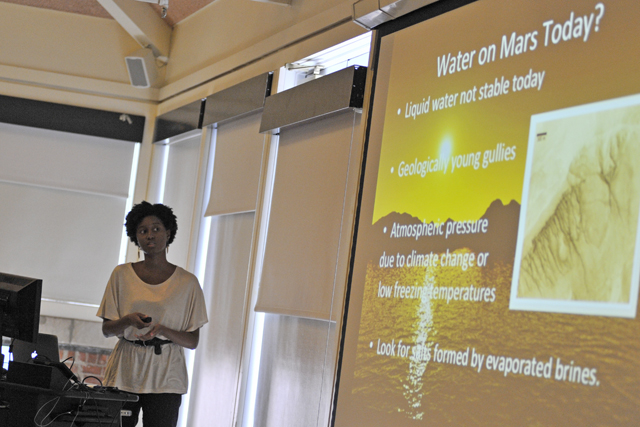
By looking at high-resolution images captured by the Mars Reconnaissance Orbiter, scientists are able to see gullies, which are argued to be geologically recent. Because they are most likely formed by water, it is believed that they can answer the question of whether or not there is still “active” water on Mars.
As a summer Wesleyan McNair scholar, astronomy major Lavontria Aaron ’14 used a hyperspectral instrument to determine if the gullies contained minerals (salts) which would be left behind by water brines.
“By examining the spectrum of the brines, we’ll be able to learn more about Mars’ history and possibly man’s future in pursuit of exploring the red planet,” says Aaron, who worked on the project with her faculty advisor Marty Gilmore, chair and associate professor of earth and environmental sciences.
Aaron and her 13 McNair peers are supported by the Ronald E. McNair Post Baccalaureate Achievement Program, which serves students in their second, third, and fourth college semesters. It provides career-oriented activities, workspace, peer networks, and mentors to help prepare the students to become McNair Fellows in later academic years.
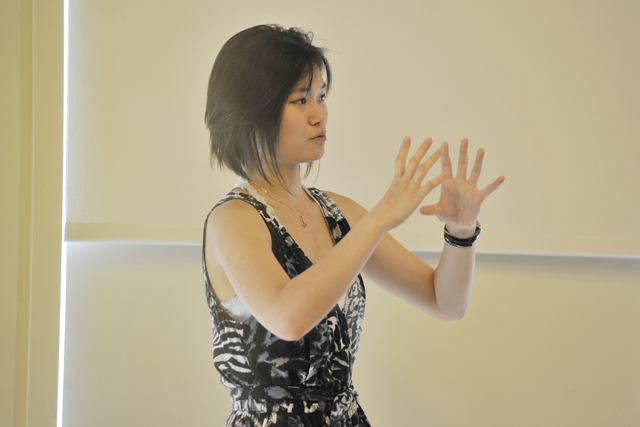
McNair scholar Li Lin ’14 worked with her faculty advisor, Rich Olson, assistant professor of molecular biology and biochemistry, on a project studying a protein called Vibrio cholerae cytolysin (VCC). VCC is a is a pore-forming toxin secreted by the pathogen Vibrio cholerae O1 El Tor, the cause of the seventh cholera pandemic in developing countries.
By using a combination of X-ray crystallography and fluorescence techniques, Lin grew crystals for understanding the VCC three-dimensional structure and explored ways that VCC interacts with different cells.
“These studies form an important first step in understanding how VCC binds to cell membranes and increases toxin activity against cells, ” she says.
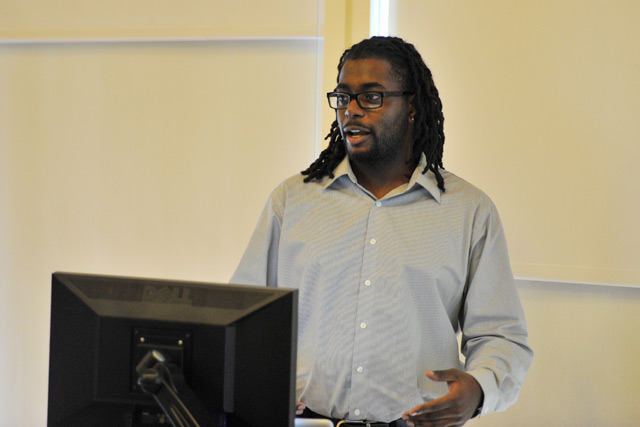
McNair scholar Kwame Adams ’14 studied “Race Men in the Post Civil Rights Era” this summer. His advisor is Elizabeth McAlister, chair and associate professor of religion, associate professor of African American studies, associate professor of American studies.
A Race Man, Adams explains, is a person who has the reputation as an uncompromising fighter against attempts to subordinate Negroes; one who is frustrated in his isolation from the main streams of American life, and in his impotence to control their fate decisively.
“The goal of this project is to compare the conditions of the Civil Rights Movement that allowed for a number of black political activists to gain fame, and compare them with the conditions of the present day, as African Americans in the political arena are not as visible, and the issues faced by African Americans have become problems of the black community rather than national issues,” Adams explains.
During his junior and senior year, Adams will work to analyze the conditions in which a Race Man can rise to prominence, questioning the characteristics this person possesses and who are the individuals assigning the role of a Race Man onto that person.
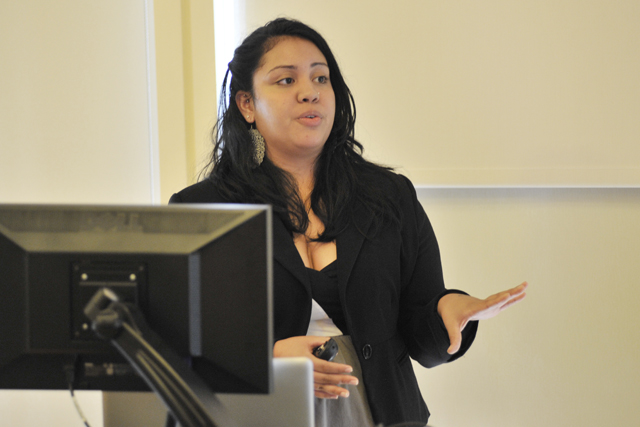
McNair scholar Luz Rivera ’13 studied “Cultural Citizenship: Diasporic Puerto Rican Identity” with her advisor, Daniella Gandolfo, associate professor of anthropology.
Through a focused analysis of Casa Boricua de Meriden, Inc., a Puerto Rican community cultural center located in Meriden, Conn., Rivera explored the themes of construction of diasporic Puerto Rican identity in Meriden since the 1970s and the intersections of formal U.S. citizenship and race as they have impacted the lives of Meriden’s diasporic Puerto Ricans.
“My hope is to gain a better understanding of Meriden’s diasporic Puerto Rican community and how it experiences cultural citizenship given that Puerto Ricans are the only Latino group in the U.S. that both possesses formal citizenship and is in an internationally recognized colonial relationship with its adopted country,” Rivera says.
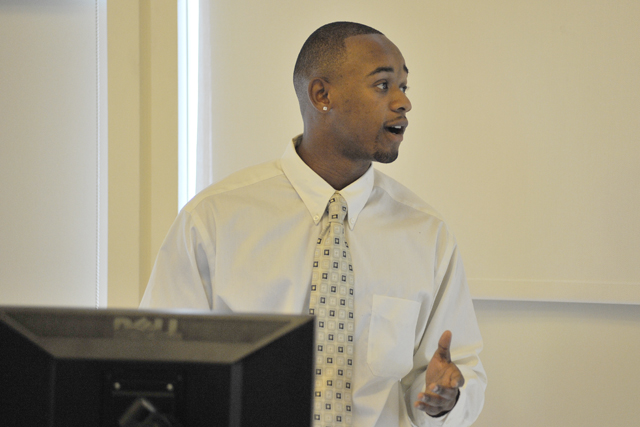
Scholar James Dottin ’13 studied “Measuring Water in Merrillite Within Martian Meteorites” with his advisor Jim Greenwood, interim faculty director of the McNair Program, research associate professor of earth and environmental sciences. The mapping project involved using a polarized light microscope with an attached camera to make a basic reference map for the Scanning Electron Microscope (SEM) in order to locate merrilites and determine how primitive a basaltic rock is. His sample, QUE942016, proved to be a more primitive basaltic meteorite.
Dottin also mounting rock samples in indium to trap hydrogen inside of the rock. By doing this, he’ll have a more accurate measurement of water during the later stage in research.

